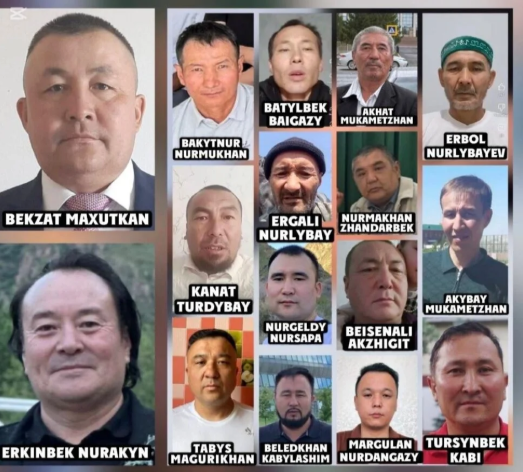China says bounty on Hong Kong democracy activists ‘necessary and justified’
- info775148
- 18. 12. 2023
- Minut čtení: 3
Aktualizováno: 3. 3. 2024
By Arpan Rai
December 17, 2023
China has said the contentious bounty announced by the Hong Kong police for information about dissidents taking refuge abroad was “justified” amid overwhelming criticism from foreign governments and human rights groups.
A reward of $1m Hong Kong (£100,942) was announced in exchange for information to aid the arrest of 13 opposition figures who are accused of violating the semi-autonomous region’s national security law, the announcement of which led to widespread protests in 2019.
Among others, the bounty was imposed on former UK consulate employee Simon Cheng, along with Johnny Fok and Tony Choi, who host a YouTube channel focusing on current affairs.
The arrest orders were “necessary and justified and in line with international law and practice”, said Chinese foreign ministry spokesperson Mao Ning, saying the Xi Jinping administration rejects the outside criticism.
In an indirect reference to the bounty, she cited extraterritorial aspects of other nation’s laws on national security, and said that any support from abroad for those on the list was merely cover for their aim of destabilising Hong Kong. The Asian financial centre was rocked by dramatic demonstrations in 2019 with anti-government protests over the law, widely seen as an attack on freedoms.
"We strongly oppose and deplore the individual countries slandering Hong Kong’s national security law and interfering in the judicial system," the minister said.
This comes a day after the Hong Kong police accused five more overseas-based activists of violating the law, and offered rewards for their arrests.
The five “endangered national security by destabilising Hong Kong under the guise of democracy and human rights”, Ms Mao said.
US secretary of state Antony Blinken said Hong Kong authorities were displaying a “disregard for international norms and human rights in Hong Kong”.
In a statement on Friday, Mr Blinken said: “We strongly oppose any efforts to intimidate and silence individuals who choose to make the United States their home and will not waver in standing up for those who are targeted simply for exercising their human rights.”
Responding to the remarks, the Hong Kong government said that the measures taken were “in line with international practice”. It added that no country should “harbour criminals nor exonerate these people with different excuses”.
The bounty further intensified the Hong Kong government’s crackdown on dissidents following the 2019 protests, which grew increasingly violent and were harshly suppressed by police.
“This morning I, a US citizen, woke up to the news that an arrest warrant and a HKD $1m bounty have been placed on my head by the Hong Kong government for exercising my freedoms in my own country,” said Joey Siu, one of the five, in a post on Twitter/X.
“More to say later but for now: I will never be silenced, I will never back down,” said Siu, who was born in North Carolina and moved to Hong Kong as a child. The police notice listed her alleged crimes as “colluding with a foreign nation or overseas forces to endanger national security.”
The British and the US governments have condemned the arrest warrants and bounties as flying in the face of human rights and democratic norms.
In response, Ms Mao said the governments’ support of “these anti-China elements exposed their sinister intention of messing up Hong Kong. China’s determination to safeguard its national sovereignty, security and development interests is unwavering. The countries concerned should respect China’s sovereignty and the rule of law in Hong Kong and stop interfering in China’s internal affairs.”
Amnesty International described the bounty as “absurd” and “designed to sow fear worldwide”.
“This is further confirmation that the Hong Kong authorities’ systematic dismantling of human rights has officially gone global. The brazen tactic of placing Wild West-style bounties on activists’ heads seems to be emerging as a method of choice to silence dissent,” said Sarah Brooks, Amnesty’s deputy director for the region.
Source: independent.co.uk









Komentáře